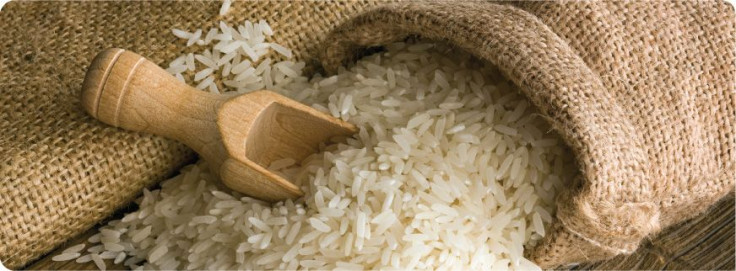Indian Rice Exports Drop Due To Iran’s Inability To Make Timely Payments

KEY POINTS
- Haryana accounts for 40% of India’s total basmati rice exports
- Iran typically buys almost one-third of India’s basmati rice exports
- Rice is India’s biggest foreign exchange-earning farm commodity
India’s rice exports have dropped sharply largely due to the reluctance of Indian traders of ship any more of the grain to one of their biggest customers, Iran, which struggles to make timely payments due to U.S. sanctions.
Between April and November 2019, India’s total rice shipments amounted to 5.5 million tons, a 27% drop from 7.5 million tons shipped in the year-ago period.
In dollars terms, the value of rice exports plunged by 19% to $3.8 billion from $4.7 billion.
Rice is India’s biggest foreign exchange-earning farm commodity.
Iran has been an especially important market for India’s prized basmati rice product – historically, Iran has bought almost one-third of India’s basmati rice exports. But exports of this aromatic grain to Teheran dropped to 600,000 tons between April and November 2019 from 900,000 tons a year earlier.
Rice buyers in Iran already owe some $281.41 million to India for delivered rice.
Now, with Indian traders fretting over Iran’s delayed payments, they have signed no new contracts with Tehran in the past few days.
"In the current situation, it is not possible to export basmati rice to Iran. We have issued an advisory to our members to be cautious and not to execute further shipments till the situation gets clearer," said Nathi Ram Gupta, president of the All India Rice Exporters Association, or AIREA. “We are in a precarious situation. We have urged the Indian government to step in to ensure that our dues are cleared by Iran.”
Vijay Setia, former president of AIREA, warned that: “our exports to Iran will definitely fall this year and that is going to drag down both the country’s basmati and non-basmati rice exports. We’re worried on two counts of India’s falling rice exports and our mounting dues.”
AIREA has advised Indian rice traders to stop shipping to Iran. "If exporters choose to ship basmati rice to Iran, they will do so entirely at their risk," said an advisory from AIREA.
Setia further warned: “Due to the current situation in Iran, we will have to focus on [the] local market, which may lead to a fall in the prices.”
Gupta opined the issue will not be sorted out until India stops buying crude oil from Iran. “When we ask the [Indian] government to look into the matter, we are told to send rice by taking money in advance. It says the millers are responsible for their payment,” he said.
Amarjit Chhabra, president of Haryana Rice Exporters Association, said the northwestern state of Haryana alone contributed 40% of the total basmati rice exports of India. “We are worried about our payment and decided to export rice by taking money in advance,” he said.
A rice exporter based in Kaithal, Haryana named Narinder Miglani told Indian TV that he is withholding further shipments to Iran.
"I had sent more than 100 containers [of rice] to Mundra [port in Gujarat, India] which were about to be shipped to the Bandar-Abbas and Chabahar ports of Iran. We have withheld further shipment until the situation improves. We are not packing the rice now as the fate of the shipments is uncertain," he said. "Iran had withheld the payments following some currency issue. We have received up to 80% of the payments and 20% have still not been released. However, we trusted the buyers and started sending the shipments to Iran this year.”
© Copyright IBTimes 2025. All rights reserved.





















